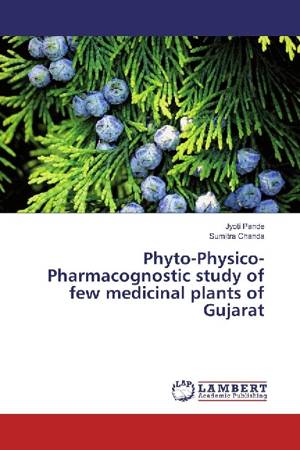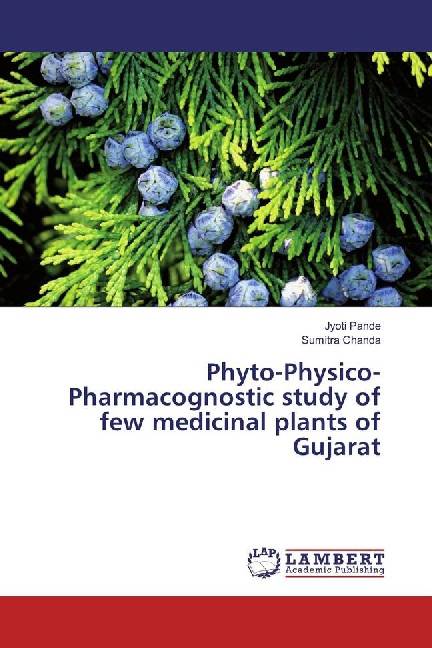
- Afhalen na 1 uur in een winkel met voorraad
- Gratis thuislevering in België vanaf € 30
- Ruim aanbod met 7 miljoen producten
- Afhalen na 1 uur in een winkel met voorraad
- Gratis thuislevering in België vanaf € 30
- Ruim aanbod met 7 miljoen producten
Zoeken
Phyto-Physico-Pharmacognostic study of few medicinal plants of Gujarat
Jyoti Pande, Sumitra Chanda
Paperback | Engels
€ 35,45
+ 70 punten
Omschrijving
Traditional medicine is the main source of medical care for a great percentage of the population of the developing world. Medicinal plants have been a valuable source of natural active phytoconsituents that play an important role in the treatment of many human diseases. The pharmacognostical characterization helps in identification and standardization and lays down quality control parameters of the crude drugs so as to distinguish it from its adulterants. The present study deals with the pharmacognostic, physicochemical and phytochemical screening of few medicinal plants (Caesalpinia pulcherrima, Casuarina equisetifolia, Cynadon dactylon, Paspalum dilatatum and Thuja occidentails) of Gujarat region, India. It includes collection, identification, microscopical, macroscopical, physicochemical and phytochemical evaluation. The screened plants were rich in flavanoids, alkaloids and tannins. The standards laid down will be useful in quick identification of crude drugs as whole or in powdered form. The parameters will enable to maintain quality and purity of the crude drugs.
Specificaties
Betrokkenen
- Auteur(s):
- Uitgeverij:
Inhoud
- Aantal bladzijden:
- 88
- Taal:
- Engels
Eigenschappen
- Productcode (EAN):
- 9783330326941
- Uitvoering:
- Paperback
- Afmetingen:
- 150 mm x 220 mm

Alleen bij Standaard Boekhandel
+ 70 punten op je klantenkaart van Standaard Boekhandel
Beoordelingen
We publiceren alleen reviews die voldoen aan de voorwaarden voor reviews. Bekijk onze voorwaarden voor reviews.








